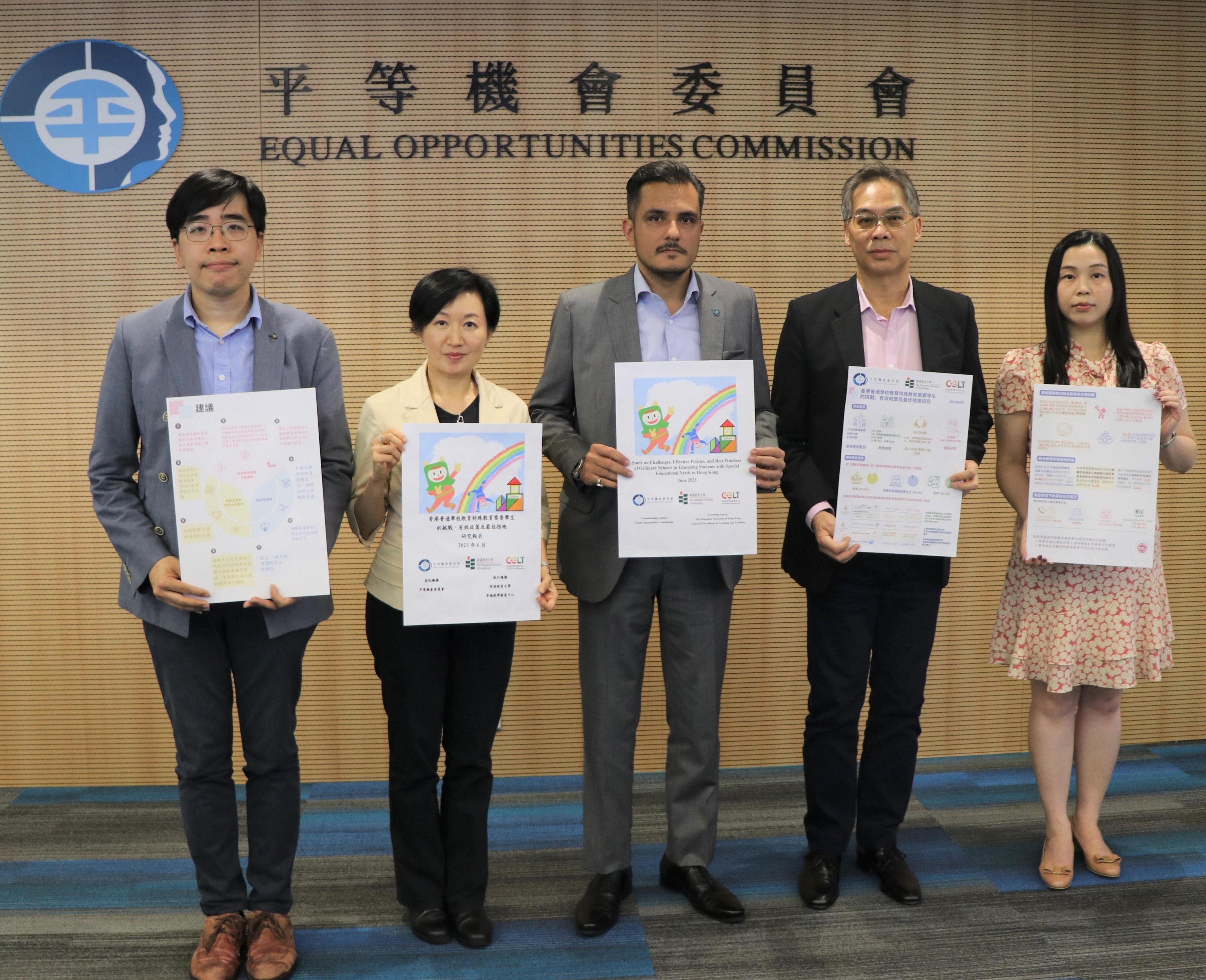
EOC releases study that explores how schools can better address needs of students with SEN
On 29 June 2023, the EOC released the findings of the “Study on Challenges, Effective Policies, and Best Practices of Ordinary Schools in Educating Students with Special Educational Needs (SEN) in Hong Kong”. Commissioned to the Centre for Excellence in Learning and Teaching of The Education University of Hong Kong, the study collected data from over 140 primary and secondary schools, with questionnaires conducted among school principals, Special Educational Needs Coordinators (SENCOs) and over 1 500 teachers to explore the challenges faced by ordinary schools in implementing integrated education and supporting students with SEN. In addition, the research team conducted individual and focus group interviews with some school principals, SENCOs, professional support personnel and parents, and case studies to identify the good exemplars of IE in primary and secondary schools.
The study revealed that while most educationalists (principals, SENCOs and teachers) had a profound understanding of the current classification of students’ SEN, principals and teachers had relatively limited understanding of the inclusion of mental illness (MI) as a category of SEN. Also, SENCOs and teachers felt quite stressed when dealing with students with Autism Spectrum Disorder or Attention Deficit/ Hyperactivity Disorder. In particular, the stress experienced by SENCOs was significantly higher than that of teachers while taking care of students with MI.
On the implementation of integrated education, over 80% of the educationalists agreed that the most challenging aspect was the tight teaching schedule or heavy teaching workload. Some 70% of principals and SENCOs also expressed that the administrative work brought by integrated education was heavy. While all the stakeholders considered the increased allocation of resources by the Government helpful in promoting integrated education, some school principals said it was difficult to find suitable personnel to assist schools in implementing integrated education, especially the lack of professional support personnel specialised in caring for particular types of students with SEN. The resources of professional support personnel, such as educational psychologists and speech therapists also remained insufficient.
It is worth noting that the surveyed SENCOs and teachers mentioned the difficulties in working with parents to tackle the problems of students with SEN, owing to the parents’ busy schedules and a lack of required skills and knowledge to support their children with SEN. In individual interviews, primary school parents cited long waiting time for government services and the exceedingly high costs of private therapy services as key barriers to providing timely support to their children with SEN.
Based on the findings, the research team proposed various policy recommendations under three domains to enhance the implementation of integrated education, namely (1) Government Policy Measures Support, (2) Professional Support and Home-School Cooperation, and (3) Teaching and Learning. These include increasing the flexibility of current school resource utilisation and setting up permanent posts for professional support personnel; promoting small-class teaching in secondary schools; improving teachers’ understanding of the Disability Discrimination Ordinance, Code of Practice on Education and integrated education, and strengthening parent-school collaboration and public and parent education, as well as strengthening mental health support to students.

